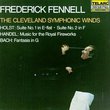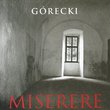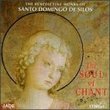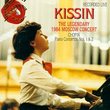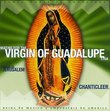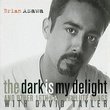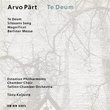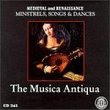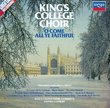| All Artists: Codex Faenza Anonymous, Jacopo da Bologna, Francesco Landini, Italian Anonymous, Johannes Ciconia, Antonio Zacara da Teramo, Bartolino da Padova, Newberry Consort Title: Music for a Medieval Banquet Members Wishing: 0 Total Copies: 0 Label: Hmf Classical Exp. Release Date: 5/8/2001 Album Type: Import, Original recording reissued Genres: Dance & Electronic, Special Interest, Pop, Soundtracks, Classical Styles: Vocal Pop, Opera & Classical Vocal, Historical Periods, Early Music Number of Discs: 1 SwapaCD Credits: 1 UPC: 713746703820 |
Search - Codex Faenza Anonymous, Jacopo da Bologna, Francesco Landini :: Music for a Medieval Banquet
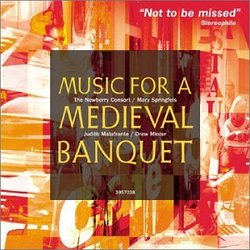 | Codex Faenza Anonymous, Jacopo da Bologna, Francesco Landini Music for a Medieval Banquet Genres: Dance & Electronic, Special Interest, Pop, Soundtracks, Classical |
Larger Image |
CD DetailsSimilarly Requested CDs |
CD ReviewsA good, simple bargain, with a sweet reward mattgb1 | New York City | 06/11/2002 (4 out of 5 stars) "This simple little album reminds me of what it is that I love most about the Italian Renaissance - its barefaced passion and gut level power. So playful and raucous at times that I felt as if I were in a scene from Pasolini's irreverent "Decameron" and at other moments, so serene that I was in a chapter from Chaucer. The music is simple and unpretentious. Not resorting to gimmicks, they allow the music to be expressed in a way that it very probably was in the age when it reigned: unashamed, expressive, brazenly colorful and just a bit flamboyant.So much for the performers. As for the producers...On the downside, it is painfully obvious that they made this album on a shoe-string budget. That can be a good thing in forcing the artists to stick to the music's purity instead of hiring a team of sound engineers to make it "sound" better, but there is absolutely no documentation about the songs, other than their titles and playing times. A sickly-thin album insert has a blurb in English and Italian about polyphony, told in allegorical style, with each paragraph in an alternating language instead of one section in each language. Go figure! Maybe the AltaVista translator they used for free had a one-paragraph limit.But it also has a variety of styles, both vocal and instrumental, so it gives a nice overall flavor of what life might have sounded like in that little part of the world, during that remarkable little slice of musical history." Good CD Tom Leoni | Alexandria, Virginia United States | 04/30/2004 (4 out of 5 stars) "One of the reasons why I bought this recording is the interesting choice of pieces, which range from the often-recorded instrumental dances to the less-known sung tracks. When I played it, the first thing that struck me of this CD is the thinness of the sound in the dances. Although the performance is spotless, it lacks the body that other medieval-dance groups add to their sound - notably the older but still great Studio der Fruehen Musik. Is this an unfair statement? Perhaps - but these dances have been recorded so many times that it is only natural to compare versions. Also, the use of percussion instruments would have been a nice touch, besides being perfectly historical. Then, a more varied instrumental arrangement may have been a good addition, especially in the longer numbers such as Chominciamento di gioia. The other point that puzzled me is that in the first track (La Badessa), the singer sounds as if she is playing a losing game of catch-up with the instruments, which results in a mediocre performance of that particular piece. It is a pity, because the song is very catchy and the singer's voice is stylistically spot on. Having said all this, the selections of songs and dances is first-choice, the performance is good and well researched and the CD remains one of the most played in my household." Re-release of Il Solazzo Michael Cuthbert | Cambridge, MA USA | 10/10/2002 (4 out of 5 stars) "Just a quick note on this CD: It's a re-release of the Newberry Consort's "Il Solazzo" disc without the texts and with less nice packaging. Since that disc can be hard to find, this CD is welcome, but if you can find the other release cheaper it's a better deal."
|

